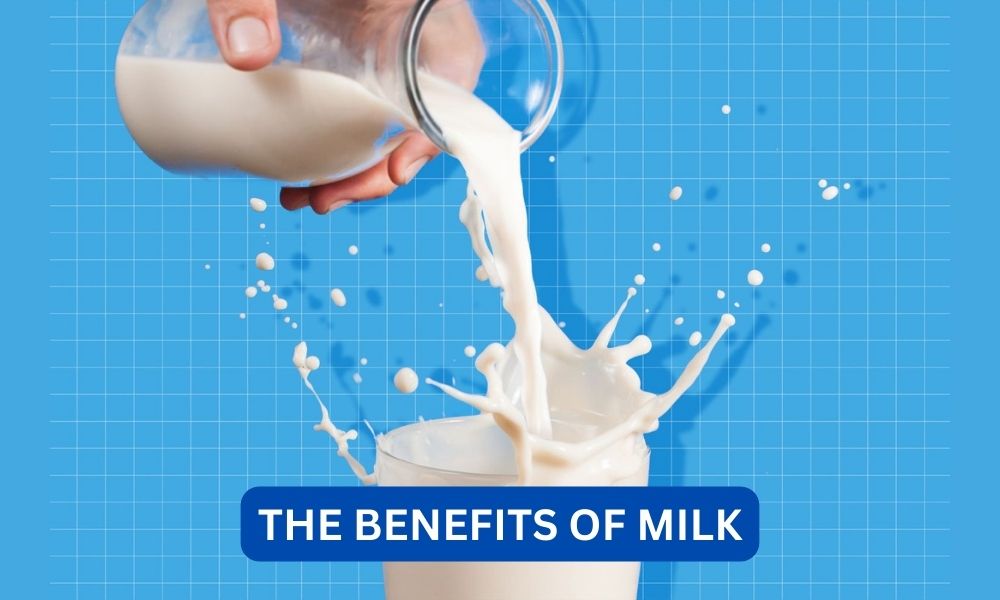Milk has been a staple in human diets for centuries, and for good reason. This nutrient-rich beverage is packed with essential vitamins and minerals that are crucial for maintaining good health. From strong bones to a healthy heart, the benefits of milk are numerous and well-documented. In this article, we will delve into the science behind milk and explore the many ways it can benefit our bodies.
Contents
The Nutritional Profile of Milk
Before we dive into the specific benefits of milk, let’s take a look at its nutritional profile. Milk is a complete food, meaning it contains all the essential nutrients needed for growth and development. It is a rich source of protein, carbohydrates, and fat, as well as vitamins and minerals such as calcium, potassium, and vitamin D.
One cup (240 ml) of whole milk contains:
- 8 grams of protein
- 12 grams of carbohydrates
- 8 grams of fat
- 276 mg of calcium (28% of the recommended daily intake)
- 322 mg of potassium (9% of the recommended daily intake)
- 2.9 mcg of vitamin D (15% of the recommended daily intake)
Additionally, milk is a good source of other essential vitamins and minerals, including vitamin A, vitamin B12, magnesium, and phosphorus.
Read:What benefits does turmeric have?The Benefits of Milk for Bone Health
One of the most well-known benefits of milk is its ability to promote strong and healthy bones. This is due to its high calcium content, which is essential for building and maintaining bone density. In fact, milk is one of the best dietary sources of calcium, with one cup providing almost a third of the recommended daily intake.
Calcium is crucial for bone health, as it helps to form and maintain the structure of bones and teeth. It also plays a role in muscle function and nerve transmission. Without enough calcium in the diet, the body will start to take calcium from the bones, leading to weakened bones and an increased risk of osteoporosis.
Studies have shown that consuming milk and other dairy products can help prevent bone loss and reduce the risk of osteoporosis, especially in older adults. In a study of over 96,000 women, those who consumed the most milk had a 41% lower risk of hip fractures compared to those who consumed the least amount of milk.
It’s not just calcium that makes milk beneficial for bone health. Milk also contains other important nutrients, such as vitamin D, which helps the body absorb calcium. Vitamin D deficiency is a common problem, especially in areas with limited sunlight, and can lead to weakened bones and an increased risk of fractures. By including milk in your diet, you can ensure you are getting enough vitamin D to support strong bones.
Read:What are the benefits of divorce mediation?Milk and Heart Health
Heart disease is one of the leading causes of death worldwide, and maintaining a healthy heart is crucial for overall well-being. The good news is that milk can play a role in promoting heart health.
One of the ways milk benefits heart health is through its potassium content. Potassium is an essential mineral that helps regulate blood pressure and maintain a healthy heart rhythm. Studies have shown that consuming potassium-rich foods, such as milk, can help lower blood pressure and reduce the risk of heart disease.
Milk also contains bioactive peptides, which are small protein fragments that have been shown to have beneficial effects on the cardiovascular system. These peptides have been found to have anti-inflammatory and antioxidant properties, which can help protect against heart disease.
Furthermore, milk is a good source of vitamin D, which has been linked to a reduced risk of heart disease. A study of over 1,700 people found that those with the highest levels of vitamin D had a 33% lower risk of heart disease compared to those with the lowest levels.
Milk and Muscle Growth
Protein is essential for building and repairing muscle tissue, and milk is an excellent source of high-quality protein. In fact, milk contains all nine essential amino acids, making it a complete protein source. This means that it provides all the amino acids needed for muscle growth and repair.
Read:What are the benefits of fastingStudies have shown that consuming milk after resistance exercise can help promote muscle growth and repair. In one study, participants who consumed milk after a workout had greater muscle protein synthesis compared to those who consumed a carbohydrate drink.
Milk also contains the amino acid leucine, which plays a crucial role in muscle protein synthesis. Leucine has been shown to stimulate muscle growth and repair, making milk an ideal post-workout beverage for those looking to build muscle.
Milk and Weight Management
Contrary to popular belief, milk can actually be beneficial for weight management. While it does contain fat and calories, it is also a good source of protein, which can help keep you feeling full and satisfied. This can prevent overeating and snacking on unhealthy foods, ultimately leading to weight loss or maintenance.
In fact, studies have shown that consuming dairy products, such as milk, can help with weight loss. In one study, overweight and obese adults who consumed a high-dairy, high-protein diet lost more weight and body fat compared to those who consumed a low-dairy, low-protein diet.
Furthermore, milk contains conjugated linoleic acid (CLA), a type of fatty acid that has been linked to weight loss. CLA has been found to reduce body fat and increase lean body mass, making it a valuable component of milk for weight management.
Milk and Dental Health
Another surprising benefit of milk is its ability to promote dental health. Milk contains calcium and phosphorus, which are essential minerals for maintaining strong and healthy teeth. These minerals help to strengthen tooth enamel and prevent tooth decay.
Milk also contains casein, a protein that has been found to have a protective effect on tooth enamel. Casein forms a protective layer over the teeth, preventing bacteria from sticking to them and causing cavities.
Furthermore, milk contains lactoferrin, a protein that has been shown to have antibacterial properties. Lactoferrin can help prevent the growth of bacteria in the mouth, reducing the risk of gum disease and tooth decay.
Milk and Mental Health
While the physical benefits of milk are well-known, its impact on mental health is often overlooked. Milk contains several nutrients that are essential for brain function, including B vitamins, magnesium, and choline.
B vitamins, in particular, play a crucial role in brain health. They help produce neurotransmitters, which are chemicals that transmit signals between nerve cells. These neurotransmitters are essential for mood regulation, memory, and cognitive function.
Milk also contains tryptophan, an amino acid that is a precursor to serotonin, a neurotransmitter that plays a role in regulating mood and sleep. Consuming milk can help increase serotonin levels, leading to improved mood and reduced symptoms of depression and anxiety.
Milk and Skin Health
Another surprising benefit of milk is its impact on skin health. Milk contains lactic acid, a type of alpha-hydroxy acid (AHA) that is commonly used in skincare products. Lactic acid helps to exfoliate the skin, removing dead skin cells and promoting cell turnover.
Furthermore, milk contains vitamin A, which is essential for maintaining healthy skin. Vitamin A helps to repair and regenerate skin cells, keeping the skin looking youthful and radiant. It also has anti-inflammatory properties, making it beneficial for those with acne-prone skin.
Some studies have also found that consuming milk can help reduce the risk of skin cancer. A study of over 100,000 women found that those who consumed the most dairy had a lower risk of developing non-melanoma skin cancer compared to those who consumed the least dairy.
Conclusion:
Milk is a nutritional powerhouse that offers numerous benefits for our bodies. From promoting strong bones and a healthy heart to supporting muscle growth and mental health, the benefits of milk are vast and well-supported by scientific research. By including milk in your diet, you can reap the many rewards of this nutrient-rich beverage and support your overall health and well-being.









